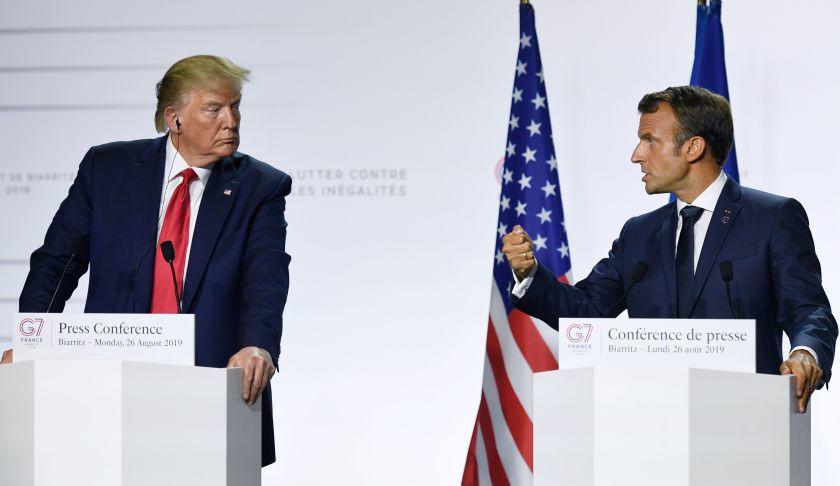President Trump has made it less and less a secret that he is pushing for new talks with Iran to “negotiate a better deal” after previously pulling out of the JCPOA. He and French President Emmanuel Macron at the close of the G7 on Monday actually spoke as if a potential meeting with Iran’s President Hassan Rouhani would be “soon” in the works.
Though The Washington Post hours after those statements cited a source saying Rouhani was “open” to such renewed talks, Tehran hours later poured cold water over the prospect by saying its ballistic missile program is “non-negotiable” and that face-to-face talks are conditioned on the White House biding by its prior commitments under the 2015 nuclear deal; however, Iranian officials were said to have reacted positively to Macron’s idea of a $15BN credit line should Iran refrain from breaching uranium enrichment caps under the prior terms of the JCPOA.
Now with media speculation rampant that Rouhani and Trump might sit down at the same table, both Israel and Saudi Arabia are reportedly stepping up efforts to preempt such a dialogue.

Israeli press and officials are expressing extreme concern, per a recent Haaretz article:
The fears in Israel, which for now are only being expressed in completely off-the-record conversations, are that Trump, eager to make his mark on world affairs and prove he can achieve a better deal than his predecessor, will find himself in a room with negotiators much wilier and more knowledgeable on the issues than he is. Convinced that he is the grand master of the art of the deal, Trump could swiftly come to an agreement with the Iranians that may sound preferable to him, but in reality will be much worse.
Israel’s intelligence and defense community are said to be strongly lobbying against such a renewed Trump engagement with Tehran after the president told reporters there’s “a really good chance” the meeting would happen.
It’s not the first time the White House has hesitantly invited Iran to the table following a summer of escalating “tanker wars” and boiling point tensions in the Persian Gulf, and amid a US military build-up in the region.
It was recently revealed that last month Iran’s Foreign Minister Javad Zarif had rebuffed a secret invitation to meet with President Trump in the oval office, which involved the mediation of Rand Paul. Just days following this, the US Treasury announced unprecedented sanctions against the Iranian top diplomat.
NEW: Pres. Trump says he would meet with Iranian Pres. Rouhani “if the circumstances were correct.”
“But in the meantime, they have to be good players.” https://t.co/kEqS3Qsjtu pic.twitter.com/nGlAlnAiXc
— ABC News Politics (@ABCPolitics) August 26, 2019
Currently, the Saudis are also jumping into the fray increasingly as Israel’s unlikely junior lobbying partner on all things “countering Iran”.
It’s been no secret that Riyadh and Tel Aviv, despite never having official diplomatic relations, have developed an intelligence sharing relationship as a result of the common cause to oust Assad in the years-long Syrian proxy war.
This week Riyadh dispatched Deputy Defense Minister Khalid bin Salman – the younger brother of Saudi Crown Prince Mohammed bin Salman – to Washington to specifically express “common concerns” over Iran. Khalid is scheduled to meet with Secretary of State Mike Pompeo Wednesday afternoon where he’s expected to argue against any US engagement with Rouhani.

Given that by all appearances the Saudis and Israelis are doing everything in their power to stymie direct US-Iran talks, the fact that Israel just conducted airstrikes on multiple Arab countries within 24 hours over the weekend in a dramatic escalation is deeply significant, given the curious timing for such brazen aggression.
Could it have been a desperate Netanyahu bid to ensure tensions with Iran and its proxies remain as high and “on the brink” as possible?
If the attacks – one of which was on a Hezbollah site in Beirut for the first time since 2006 – was toward telegraphing and provoking an Iranian response, Israel can then present the case to Washington that Iran is “on the offensive” and therefore cannot be engaged diplomatically.
via ZeroHedge News https://ift.tt/2Zy3j4i Tyler Durden